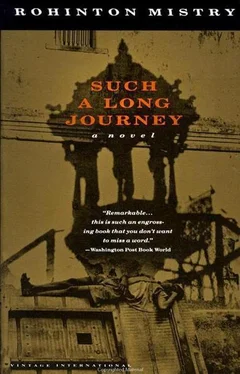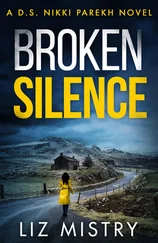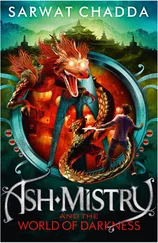But much to Darius’s disappointment, no Chinese soldiers approached Khodadad Building. Instead, teams of fund-raising politicians toured the neighbourhood. Depending on which party they belonged to, they made speeches praising the Congress government’s heroic stance or denouncing its incompetency for sending brave Indian Jawans, with outdated weapons and summer clothing, to die in the Himalayas at Chinese hands. Every political party unleashed flag-emblazoned lorries to crisscross the city with banners that were paradigms of ingenuity: weaving together support for the party and support for the soldiers, while the fund raisers shouted themselves hoarse through megaphones, exhorting people to be as selfless as the Jawans who were reddening the Himalayan snow with their precious blood to defend Bharat Mata.
And the people were moved to staunch the flow of yellow invaders. They threw blankets and sweaters and scarves out of their windows into the open lorries that passed below. In some wealthy localities, the collection drive turned into a competition, with neighbours trying to outdo one another in their attempts to simultaneously seem rich, patriotic and compassionate. Women removed gold bangles and earrings and finger rings from their persons and gave them away. Money — notes and loose change — was wrapped in handkerchiefs and tossed into the fund-raisers’ grateful hands. Men tore shirts and jackets off their backs, yanked shoes off their feet, belts off their waists, and flung them into the lorries. What a time it was, and it brought tears of pride and joy into the eyes of everyone to see such solidarity, such generosity. Afterwards, it was said that some of the donated goods had turned up for sale in Chor Bazaar and Nul Bazaar, and in the stalls of roadside hawkers everywhere, though not much attention was paid to that nasty allegation; the glow of national unity was still warm and comforting.
But everyone knew that the war with China froze Jawaharlal Nehru’s heart, then broke it. He never recovered from what he perceived to be Chou En-lai’s betrayal. The country’s beloved Panditji, everyone’s Chacha Nehru, the unflinching humanist, the great visionary, turned bitter and rancorous. From now on, he would brook no criticism, take no advice. With his appetite for philosophy and dreams lost for ever, he resigned himself to political intrigues and internal squabbles, although signs of his tyrannical ill temper and petulance had emerged even before the China war. His feud with his son-in-law, the thorn in his political side, was well known. Nehru never forgave Feroze Gandhi for exposing scandals in the government; he no longer had any use for defenders of the downtrodden and champions of the poor, roles he had himself once played with great gusto and tremendous success. His one overwhelming obsession now was, how to ensure that his darling daughter Indira, the only one, he claimed, who loved him truly, who had even abandoned her worthless husband in order to be with her father — how to ensure that she would become Prime Minister after him. This monomaniacal fixation occupied his days and nights, days and nights which the treachery of Chou En-lai had blighted for ever, darkened permanently, unlike the blacked-out cities, which returned to light after the conflict ended and people uncovered their doors and windows.
Gustad, however, left his blackout paper undisturbed. He said it helped the children to sleep better. Dilnavaz thought the idea was ridiculous, but she did not argue because his father had passed away recently in the nursing home. Perhaps, she thought, he found the darkness soothing after death’s recent visitation.
‘Remove the black paper whenever you are ready, baba. Far be it from me to force you,’ she said, but registered pointed observations at regular intervals: the paper collected dust and was difficult to clean; it gave spiders ideal places to spin their webs; it provided perfect cover for cockroaches to lay their eggs; and it made the whole house dark and depressing.
Weeks went by, then months, with paper restricting the ingress of all forms of light, earthly and celestial. ‘In this house, the morning never seems to come,’ Dilnavaz continued to complain. By and by, she learned new ways to deal with dust, webs, and household pests. The family grew accustomed to living in less light, as if blackout paper had always covered the windows. Occasionally, though, when Dilnavaz was feeling particularly harassed by quotidian matters, the paper became the target of her frustration: ‘Very nice this is. Son collects butterflies and moths, father collects spiders and cockroaches. Soon Khodadad Building will become one big insect museum.’
But three years later, the Pakistanis attacked to try to get a piece of Kashmir as they had done right after Partition, and blackout was declared once again. Then Gustad triumphantly pointed out to her the wisdom of his decision.
He left his sleeping children and returned to read the rest of the paper. It was not yet time for his prayers: light had not yet broken on the horizon. He followed Dilnavaz to the kitchen and read the headline for her benefit: ‘Reign of Terror in East Pakistan’.
‘Wait, I am filling the matloo, ’ she said, unable to hear over the gush of running water. The water pressure was low today, the drums took longer to fill. She wondered why, washing the square of lawn cloth to strain and store the day’s drinking water. She tossed the soggy cloth flat over the open mouth of the earthen pot. It landed with a sharp, wet slap. She bore downwards expertly at its centre, with her fingers, to create a cloth funnel.
‘It says that the Republic of Bangladesh has been proclaimed by the Awami League,’ Gustad continued when the tap was turned off. ‘In the canteen at lunch-time I told all the fellows this is exactly what would happen. They were saying that General Yahya would allow Sheikh Mujibur Rahman to form the government. My right hand I will cut off and give you, I said, if those fanatics and dictators respect the election results.’
‘What will happen now?’ He ignored her question and read silently, about Bengali refugees streaming over the border with tales of terror and bestiality, of torture and killings and mutilations; of women in ditches with their breasts sliced off, babies impaled on bayonets, charred bodies everywhere, whole villages razed.
The earthen pot was full to the brim. Dilnavaz measured six drops of the dark crimson solution. It never stopped nagging her that they did not boil the water. But Gustad said that straining and adding potassium permanganate was precaution enough. She tried to wring dry a soaked corner of her faded floral nightgown. The veins, prominently blue on her much-too-rapidly ageing hands, swelled with the effort. The lid of the boiling kettle jiggled and rattled.
‘I wonder what Major Bilimoria would have thought,’ she said, scooping in three spoons of Brooke Bond. The kettle’s noisy gurgles became soft murmurs. She hated making tea directly in the kettle, but the dark brown English teapot they had used for more than twenty years had cracked. The frayed tea cozy, spilling mildewy stuffing, also needed to be replaced.
‘Major Bilimoria? Thought of what?’ He wondered if she suspected anything about the hidden letter, and tried to sound indifferent.
‘About this trouble in Pakistan, people saying there will be war. With his army background he would have inside information.’
Major Jimmy Bilimoria had lived in Khodadad Building for almost as long as the Nobles. Gustad always pointed him out to the children as a good example, urging them to walk erect, with chest out and stomach in, like Major Uncle. The retired major loved to regale Sohrab and Darius with tales from his glorious days of army and battle. For his young listeners, the stories quickly acquired the stature of legend, with their Major Uncle the legendary hero, as he told of the cowardly Pakistanis who turned tail and ran in 1948, when confronted by Indian soldiers in Kashmir, or about the fiasco of the dreaded tribesmen from the North-West Frontier, who had been the scourge of the mighty British Army in the days of Empire. To the wild and ferocious tribesmen, said Major Uncle, fighting and killing was no more than a favourite game. Turned loose by the Pakistanis, they got drunk and began to loot the first village they passed through, instead of pushing on to attack the capital. The hours went by as they hacked up their victims and went from house to house in search of money and jewels and women. All their fun and games, said Major Uncle, provided precious time for Indian reinforcements to arrive. Kashmir was safe, the battle was won. Then the children would heave a sigh of relief and applaud. His stories, as he described the various episodes — the crossing of Banihal Pass, the battle for Baramullah, the siege of Srinagar — were so fascinating that Gustad and Dilnavaz too would listen, enthralled.
Читать дальше












